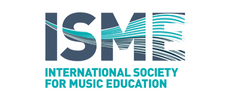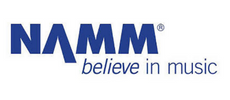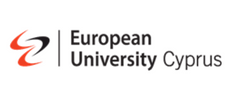The value of a Society and its alliances: SASMT, PASMAE and ISME
This is a report about an alliance created by SASMT, PASMAE and ISME and the outcomes from it.
John Donne (1573–1631), the English poet and cleric considered to be the pre-eminent representative of the metaphysical poets and one of the greatest writers of English prose, wrote:
No man is an island, entire of itself; every man is a piece of the continent, a part of the main… because I am involved in mankind, and therefore never send to know for whom the bell tolls; it tolls for thee.
The South African Society of Music Teachers owes its existence to the fact that, since its inception nearly 100 years ago, there was a need to unify the music teaching profession and to further the interest of the profession ‘collectively and individually, besides bringing Music Education and our rich and varied culture to as many people as possible throughout all areas of Southern Africa’ (SASMT handbook revised 2015).The term ‘society’ originated from the Latin word societas which in turn was derived from the noun socius (comrade, friend, ally). A society is thus a body of individuals defined by their functional interdependence, comprising characteristics such as cultural identity, social harmony, shared interest, team spirit and cohesion. It addresses the fact that an individual has rather limited means as an autonomous unit and so belonging to a society enables people to enlarge their operating base to include input from significant others in the field of their interest. In the case of the SASMT as a society, the question arises whether it should join international bodies such as PASMAE and ISME.
The benefits would include opportunities to enhance members’ professional competency and at the same time aid them to stay up-to-date and relevant in a changing and developing world, nationally and internationally. Members are invited to attend conferences where current issues regarding music education, lecture-demonstrations, exhibitions, and musical performances are offered. conferences are valuable occasions for music teachers to develop their teaching skills and to be informed of the state of their profession; they offer valuable opportunities to share common goals and interests. Judy Thönell adds in her keynote address to the 2016 PASMAE regional conference in Paarl, the importance of ‘sharing what happens in your country … facilitating friendships and collegiality with other members, particularly after conferences, keeping in touch’.
Members who attend these conferences can attest to these enriching experiences.
Evidence of diverse cultural endeavours towards the achievement of artistic and cultural harmony in southern Africa can be found in a variety of projects that are kept alive like campfires through the incentives of musicians, teachers and music lovers all over the country! To mention but a few:
The Keiskamma project
The Keiskamma Music Academy’s vision is to give children the life-changing opportunity to become highly skilled and trained musicians. The discipline and knowledge that are required in this pursuit, as well as the fulfilment and sense of achievement that come with creating beauty, are some of the highlights of this kind of training.
The children in the program receive regular recorder lessons, enter examinations and competitions, and perform regularly.
The Music Academy includes a marimba band, bringing musical game activities to nursery school children, and aims to provide lessons on other orchestral instruments. It was initiated by Helen Vosloo, a professional flautist and member of the SASMT.
The Mangaung project
This project’s philosophy has been to build on success, seeking ways to expand the program to areas outside of Bloemfontein. ‘If it works in Mangaung, surely it can work in other areas as well’, says Peter Guy, the director of the project.
Following on the success and the model of the Mangaung program and at the encouragement of the Community Services Department at the University of the Free State, contact was made at several schools in the southern Free State, commonly known as the Xhariep District. Tuition is provided in Philippolis, Springfontein, Edenburg and Trompsburg. In 2011 at the direction of the HOD of the Department of Sport, Arts, Culture and Recreation, Adv. Tsoarelo Malakoane, the program was expanded to include Kroonstad, which is a four-and-a half-hour return trip. In 2014 the program was expanded to include schools in Thaba Nchu, in co-operation with the Mmabana Art and Cultural Centre.
The Musikhane Musical Project
Bertha Spies, who initiated the project, at the North-West University, Potchefstroom campus explains that it became more than an outreach to people who were less fortunate than I was, because as a group of workers we also grew in our appreciation and understanding of people whom we did not know before ̶ the interaction enriched our lives. Even more, we discovered that it is working together towards a common goal (for example, a concert) that helped to strengthen the social fabric; it is not the once-off presentation of the World Cup or celebrations of various occasions that unite people. But working together is a sustainable strategy …
The Mus-E project
Living the broad idea of arts education, Yehudi Menuhin initiated a project called Mus-E under the auspices of the International Yehudi Menuhin Foundation (IYMF). This programme focuses on the development of children through music, singing, drama, painting, dance and other forms of art.
The fundamental principle of MUS-E is that art should be part of daily education, accessible to all and therefore to open new possibilities of expression and ways of looking at life and people … and, the programme intends particularly to help those children coming from challenging environments to begin the road of personal fulfilment.
The Hillbrow project
Hillbrow was and is at the forefront of social change in South Africa. Many social issues of South Africa are concentrated here: There is a high incidence of HIV/AIDS, domestic violence, refugee influx, urbanisation and degradation of urban environments, drug dealing, prostitution and crime.
Many of these iniquities are related to or aggravated by the lack of social structure, urban socialization of the new residents and unemployment. There are, however, indications and efforts in place that suggest a visionary rethinking about the role of Hillbrow.
The Hillbrow Music Centre (HMC) is run by and sponsored by the Lutheran Community Outreach Foundation. Participation is voluntary (usually with no parental encouragement) and the sheer number of applicants over the years is evidence of the community’s need for such an enterprise. The primary objective of the project is to provide an alternative, positive, and skills-development after-school activity for children and youth in Hillbrow and the surrounding inner-city areas. The project aims to keep children and youth off the streets and provide them with activities that support their holistic development. Their philosophy states that learning to play an instrument and musical appreciation impacts on a child’s personal and socio-economic development.
The HCMC provides both formal (instrument study and music theory) and informal (group work and workshops) music tuition to some 150 students by 8 qualified music tutors. Tuition is offered in piano, violin, cello, trumpet, trombone, marimba, guitar, recorder, saxophone and clarinet. Theory of music and music appreciation are offered as an integral part of the instrument study. The programme provides beneficiaries the opportunity to discover their creative and artistic abilities.
Unisa Music Foundation Community Projects
After the 1998 ISME Conference held in Pretoria, a financial sponsorship and some musical instruments were donated to the Unisa Music Foundation. They decided to donate the instruments to the Ochrim School of Music in Soshanguve, north of Pretoria (Ochrim = Organisation of Christian Musicians).
Initially a small budget could pay one of the first teachers, Mandy Low, for recorder classes. Later in the project, more tutors were acquired and it developed to include music theory and tuition in stringed instruments, eventually growing to a full symphony orchestra — thanks to a sponsorship by Sasol. Pupils come from far and wide e.g. the Themba Music Project and projects in Hammanskraal and Stinkwater. The Unisa Music Foundation sponsored projects at the Khenzani Primary School in Soshanguve, projects in Mamelodi, the Baviaanspoort prison and elsewhere. Renovations were done in Soshanguve until the new Unisa School of Music was opened in 2011. Tutors graduating from this project have later opened their own music schools e.g. a school in an informal settlement in Mamelodi East.
The Johannesburg Music Initiative (JMI)
For seven years, the JMI arranged and produced a feast of monthly concerts called Word on Music, entertaining and educating learners, their tutors and the public in various styles of music. These concerts introduced learners to the wonderful world of orchestral instruments; solo instruments as well as their role within an orchestra. Concerts were advertised as ‘Musical Poetry’, ‘Jazz Classics’, ‘Fluted Things’, ‘Gumboots to Ballet’, ‘Kwaito to Opera’, ‘Hands on Ivory’ or ‘Bass on the Double’ all sponsored by the SABC.


